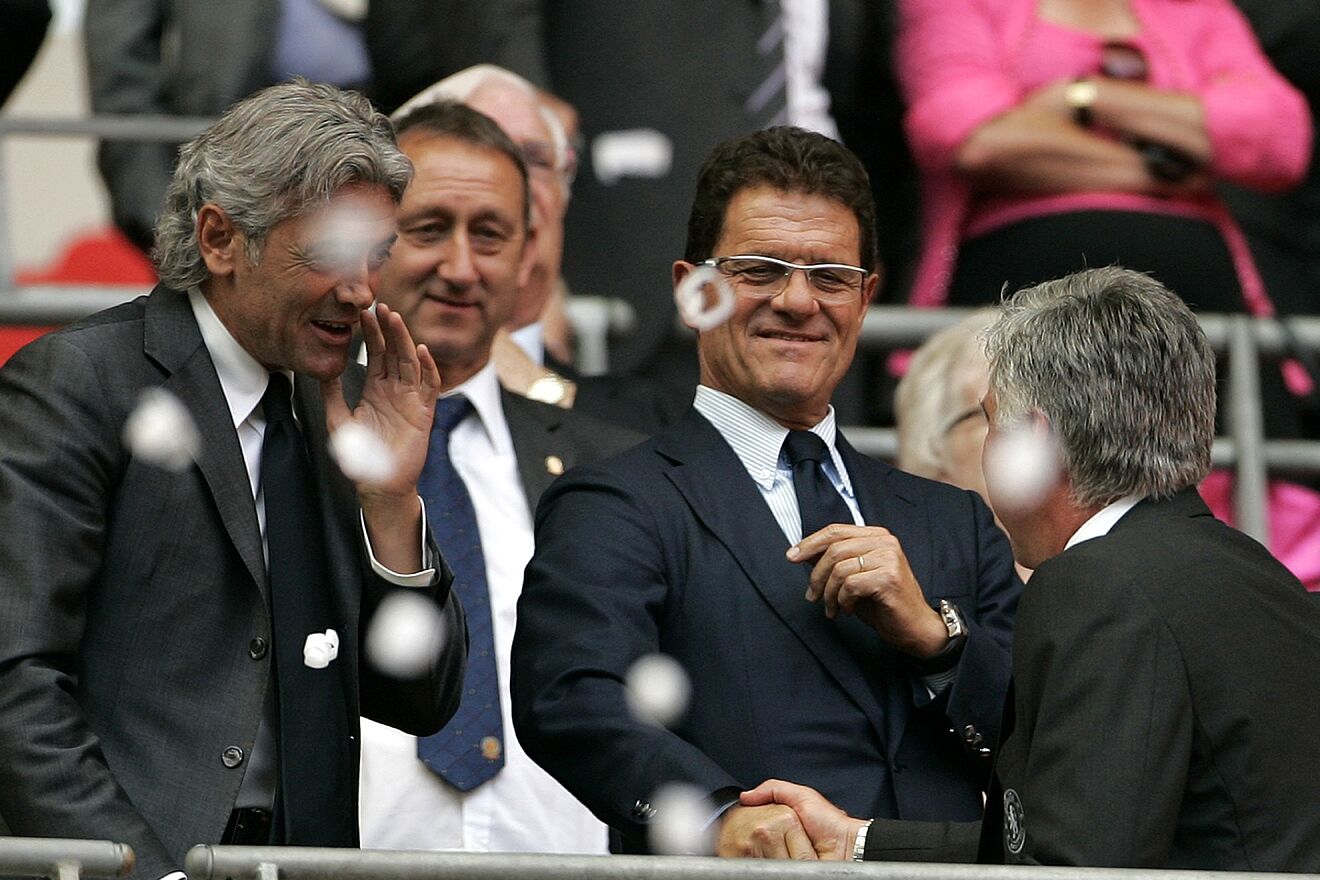Comparing The Coaching Styles Of Ancelotti And Capello

Table of Contents
Both managers boast illustrious careers, laden with trophies. Ancelotti, a master tactician known for his player-centric approach, has won multiple Champions League titles with AC Milan and Real Madrid, alongside league titles in Italy, England, France, and Spain. Capello, renowned for his iron discipline and results-oriented pragmatism, has achieved domestic league titles in Italy, England, and Russia, showcasing a different path to victory. This article aims to dissect these contrasting approaches, exploring the key differences and unexpected similarities between these two managerial titans.
Ancelotti's Player-Centric Approach
Ancelotti's managerial style is characterized by his deep understanding of individual players and his ability to foster a positive and collaborative team environment.
Emphasis on Player Development and Relationship Building
- Focuses on individual player strengths, tailoring tactical systems to maximize their potential.
- Creates a positive team environment built on trust, open communication, and mutual respect.
- Prioritizes player development, integrating young talents seamlessly into the first team.
- Adapts his tactics to suit the abilities and strengths of his players.
Ancelotti's success with young players is legendary. Consider the development of players like Kaka at AC Milan or the seamless integration of Federico Valverde into Real Madrid's starting XI. His ability to manage star players, such as Cristiano Ronaldo and Zlatan Ibrahimovic, effectively, showcasing his exceptional man-management skills, is another testament to his player-centric approach. He builds trust and creates an atmosphere where players feel valued and empowered. This fosters loyalty and dedication, leading to exceptional team performances.
Tactical Flexibility and Adaptability
- Demonstrates remarkable ability to switch formations mid-game, reacting effectively to opponents' strategies.
- Adapts his tactical approach to different opponents, deploying various attacking and defensive strategies.
- Employs a diverse range of attacking and defensive systems, showcasing tactical versatility.
Ancelotti's tactical flexibility is a key element of his success. Remember his masterful adjustments during the 2014 Champions League final, where Real Madrid overcame Atlético Madrid's stubborn defense. His ability to change formations, tweak strategies, and bring on substitutes at the perfect moment underscores his tactical acumen and adaptability. His teams are not just reactive; they are proactive, always seeking an advantage. This adaptable manager consistently evolves his tactics to counter specific opponents, illustrating his ability to outthink and outmaneuver rivals.
Capello's Authoritarian and Disciplined System
In stark contrast to Ancelotti's nurturing approach, Capello's style is rooted in strict discipline and unwavering adherence to tactical principles.
Strict Discipline and Tactical Rigidity
- Emphasizes defensive solidity, building his teams around a strong foundation at the back.
- Imposes strict training regimes and demands unwavering adherence to tactical instructions.
- Clearly defines roles and responsibilities for each player, leaving little room for improvisation.
- Shows limited deviation from pre-determined tactical plans, maintaining consistency and predictability.
Capello's reputation precedes him; he's known for his demanding nature and iron-fisted discipline. He expects players to adhere strictly to his tactical instructions, placing a premium on defensive solidity and organization. His training regimes are notoriously rigorous, pushing players to their physical and mental limits. This "no-nonsense" approach, while perhaps less accommodating to individual expression, cultivates a highly disciplined and tactically sound unit.
Results-Oriented Approach and Pragmatism
- Prioritizes winning above all else, viewing attractive football as secondary to achieving victory.
- Employs a pragmatic approach, focusing on effective strategies even if lacking aesthetic appeal.
- Often utilizes a counter-attacking style, focusing on exploiting defensive weaknesses.
- Demonstrates unwavering commitment to getting results regardless of the methods employed.
Capello's pragmatism is another defining trait. While beauty in the game is important, he prioritizes winning, even if that means sacrificing flair for solidity and efficiency. His teams are often characterized by their defensive resilience and ability to capitalize on opportunities. He readily adopts a pragmatic approach – choosing practicality over aesthetics – a testament to his results-oriented philosophy. This can be seen in several successful spells, proving his methods bring results.
Comparing Key Differences and Similarities
Contrasting Philosophies
| Feature | Ancelotti | Capello |
|---|---|---|
| Coaching Philosophy | Player-centric, development-focused | Results-oriented, discipline-focused |
| Tactical Approach | Flexible, adaptable, varied formations | Rigid, disciplined, defensive-minded |
| Team Environment | Positive, collaborative, trusting | Demanding, disciplined, hierarchical |
| Player Management | Nurturing, relationship-building | Authoritarian, demanding, results-driven |
Shared Successes
Despite their contrasting approaches, both Ancelotti and Capello have achieved remarkable success. This highlights the fact that effective management can manifest in various forms, each suited to different circumstances and squads. Both managers demonstrate the capacity to lead teams to greatness, albeit through different paths.
Conclusion: Summarizing the Coaching Styles of Ancelotti and Capello
In conclusion, comparing the coaching styles of Ancelotti and Capello reveals two distinct yet equally effective approaches to football management. Ancelotti’s player-centric, adaptable style fosters a positive team environment and cultivates individual player growth, while Capello’s disciplined, results-driven approach prioritizes tactical rigidity and unwavering commitment to winning. The key takeaway is that successful management in football isn't confined to a single model; diverse philosophies can yield remarkable results.
Which coaching style resonates most with you? Do you believe one approach is inherently superior to the other? Share your thoughts on comparing the coaching styles of Ancelotti and Capello in the comments section below!

Featured Posts
-
 58 Nike Court Legacy Lift Sneakers This Weeks Best Deal
May 29, 2025
58 Nike Court Legacy Lift Sneakers This Weeks Best Deal
May 29, 2025 -
 The Nike Air Max Dn8 A Deep Dive Into The Latest Sneaker
May 29, 2025
The Nike Air Max Dn8 A Deep Dive Into The Latest Sneaker
May 29, 2025 -
 Aftenposten Topp Hedret Arets Redaktor
May 29, 2025
Aftenposten Topp Hedret Arets Redaktor
May 29, 2025 -
 A Malcolm In The Middle Revival What To Expect
May 29, 2025
A Malcolm In The Middle Revival What To Expect
May 29, 2025 -
 Canadian Music Icons A 2000 2023 Retrospective
May 29, 2025
Canadian Music Icons A 2000 2023 Retrospective
May 29, 2025
